 W
WMidhat "Ajan" Ajanović is a Bosnian-Swedish film theorist, animator and novelist. He is a lecturer on animation and in 2009 defended his doctorate thesis on animation, the second one on the subject in Sweden. Since 1983 he has written several novels, most often with Yugoslav/Bosnian themes and published in Bosnian, Croatian or Swedish. In 2010 Ajanović was a laureate at the Animafest Zagreb animation festival, for his achievements in the study of film animation.
 W
WIvo Andrić was a Bosnian novelist, poet and short story writer who won the Nobel Prize in Literature in 1961. His writings dealt mainly with life in his native Bosnia under Ottoman rule.
 W
WMuharem Bazdulj is a Bosnian-born Serbian writer.. He is one of the leading young writers in the Balkans. His work of historical fiction Byron and the Beauty has been translated into English by John K Cox.
 W
WMusa Ćazim Ćatić was a Bosnian poet of the Bosnian-Herzegovinian Renaissance at the turn of the 20th century.
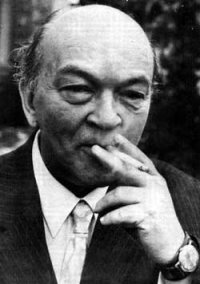 W
WEnver Čolaković was a Bosnian novelist, poet and translator, best known for his 1944 novel The Legend of Ali-Pasha. During the later stages of World War II he served as a cultural attaché to the Independent State of Croatia embassy in Budapest. After the war he spent the rest of his life in Zagreb, where he published a number of literary translations from Hungarian and German.
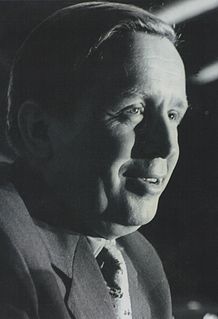 W
WBranko Ćopić was a Yugoslav writer.
 W
WEdvin Kanka Ćudić, is a Bosnian human rights activist, martial artist, journalist and political analyst who is best known as the leader of the UDIK, an organisation campaigning for human rights and reconciliation in the former Yugoslavia.
 W
WJovan Divjak is a former Bosnian army general who served as the Deputy Commander of the Bosnian army's main staff until 1994, during the Bosnian War.
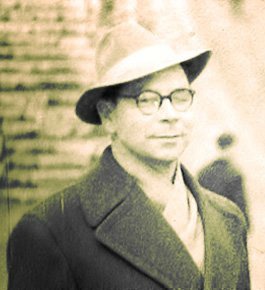 W
WHamid Dizdar was a Bosnian writer and poet. His younger brother Mak Dizdar was also a prominent poet.
 W
WMehmedalija "Mak" Dizdar was a Bosnian poet. His poetry combined influences from the Bosnian Christian culture, Islamic mysticism and cultural remains of medieval Bosnia, and especially the stećci.
 W
WSheikh Mustafa Gaibi or Gaibija was a 17th-century dervish from Ottoman Bosnia whose mausoleum (turbe) at Stara Gradiška in Slavonia, in present-day Croatia, became a prominent site of ritual visitation by Muslims. He was regarded as a prophet by some Catholics. He wrote in Ottoman Turkish a discourse on the rules of the Jelveti Sufi order, to which he belonged. He also wrote letters in which he criticized various kinds of wrongdoing that he regarded as widespread in the Ottoman Empire. His letters contain mystical-looking expressions that are difficult to understand. He is reputed to have predicted the defeat of Ottomans at the Battle of Vienna in 1683 and the subsequent loss of their territories north of the river Sava. According to a local Catholic source, an Ottoman soldier killed Gaibi in Stara Gradiška, at the left bank of the Sava, after he refused to escape with other Muslims across the river before the advancing Habsburg army; they captured Stara Gradiška in 1688. In 1954, his turbe was transferred across the Sava, to the town of Gradiška in Bosnia and Herzegovina.
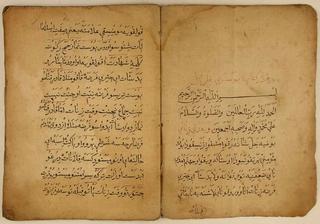 W
WAbdulvehab Ilhamija Žepčevi was an 18th-century Bosnian dervish and prose writer.
 W
WGrgo Ilić (Gregorius; Higlich, Hilijić-Ilijić, Hilijić-Varešanin, Hiljich de Vares, Varešanin, Ilijić-Varešanin, Zečević), also known as fra Grgo Varešanin, was a Franciscan friar and bishop from Bosnia and Herzegovina.
 W
WAlija Izetbegović was a Bosnian politician, lawyer and author, who in 1992 became the first president of the Presidency of the newly independent Republic of Bosnia and Herzegovina. He served in this role until 1996, when he became a member of the Presidency of Bosnia and Herzegovina, serving until 2000.
 W
WIvan Franjo Jukić was a Franciscan writer from Bosnia and Herzegovina, mostly writing under the pseudonym Slavoljub Bošnjak, whose life and cultural and political legacy have left an indelible mark on the cultural history of the country, where he is remembered as one of the founders of Bosnian modernism.
 W
WMehmed-beg Kapetanović Ljubušak was a Bosnian writer and public official.
 W
WAvdo Karabegović, better known by his pen name S. Avdo Karabegović, was a Bosnian, and later Serbian, poet who was active between 1895 and 1908.
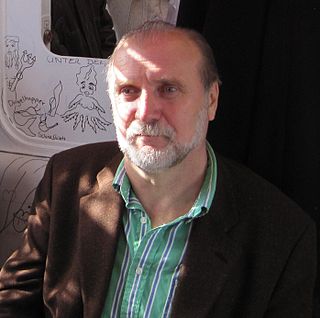 W
WDževad Karahasan is a Bosnian writer and philosopher. Karahasan was awarded with Herder Prize and Goethe Medal for his writings.
 W
WFra Antun Knežević was a Bosnian Franciscan friar, historian and writer from Varcar Vakuf, Bosnia and Herzegovina. He was a staunch proponent of Bosnian national identity, while being an active member of the Illyrian Movement.
 W
WPetar Kočić was a Bosnian Serb writer, activist and politician. Born in rural northwestern Bosnia in the final days of Ottoman rule, Kočić began writing around the turn of the twentieth century, first poetry and then prose. While a university student, he became politically active and began agitating for agrarian reforms within Bosnia and Herzegovina, which had been occupied by Austria-Hungary following the Ottomans' withdrawal in 1878. Other reforms that Kočić demanded were freedom of the press and freedom of assembly, which were denied under Austria-Hungary.
 W
WSkender Kulenović was a Yugoslav poet, novelist and dramatist.
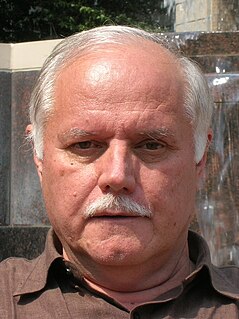 W
WKemal Kurspahić is a Bosnian Managing Editor of The Connection Newspapers in Alexandria, Va., USA and Chairman/Founder of the Media in Democracy Institute, dedicated to promoting higher standards in journalism in post-conflict societies and countries in transition to democracy. He won broad international recognition as the Editor-in-Chief of the Bosnian daily Oslobođenje in Sarajevo, 1989-1994.
 W
WFilip Lastrić, also known as Philippus de Occhievia, was a Bosnian writer and friar of the Franciscan Province of Bosna Argentina. His works include the first overview of the geography and history of Bosnia and Herzegovina.
 W
WVitomir Lukić, was a Yugoslav prose writer and pedagogue, considered to be one of the greatest writers to emerge from Bosnia and Herzegovina in the 20th century.
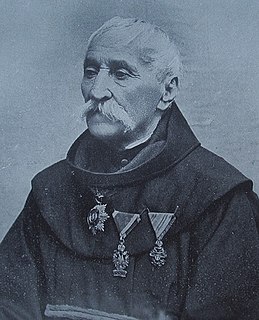 W
WFra Grgo Martić, also known as Grga or Mato Martić, was a Bosnian friar and writer in the Franciscan Province of Bosna Srebrena.
 W
WVeselin Masleša was a Bosnian and Yugoslav writer, activist and Partisan.
 W
WMartin Nedić was a Bosnian poet. He wrote mostly under the pseudonym "Stari Ilir iz Bosne" and "fra Martin Nedić Bošnjačanin"
 W
WBazilije Stjepan Pandžić was a Herzegovinian Croat historian, archivist and orientalist. He entered the Franciscan Order in 1935 and was ordained for a priest in 1941. From 1947 to 1985 he was the general archivist and analyst of the Franciscan Order in Rome. In 1958 he was elected vice-president of the International Association of Church Archives. He turned 100 in January 2018 and died in April 2019 at the age of 101.
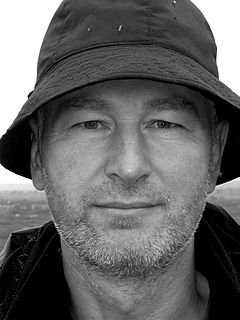 W
WMilorad Pejić is a Bosnian poet who resides in Lund, Sweden.
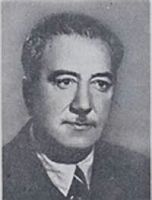 W
WIsak Samokovlija was a prominent Bosnian Jewish writer. By profession he was a physician. His stories describe the life of the Bosnian Sephardic Jews.
 W
WSasha Skenderija is a Bosnian-American poet currently residing in Prague.
 W
WSaša Stanišić is a Bosnian-German writer. He was born in Višegrad, Bosnia and Herzegovina as the son of a Bosniak mother and a Serbian father. In the spring of 1992, he fled alongside his family to Germany as a refugee of the Bosnian War.
 W
WMarinko Bunić is a Yugoslav writer.
 W
WMarijan Šunjić was a Bosnian Franciscan, Catholic bishop, Apostolic Vicar in Bosnia, writer, linguist; scientific, cultural and political worker.
 W
WDerviš Sušić was a Bosnian writer, known best for his first work I, Danilo.
 W
WDuško Trifunović was a Serbian writer, poet and television author.
 W
WGavro Vučković Krajišnik was a Bosnian Serb politician, trader and writer.